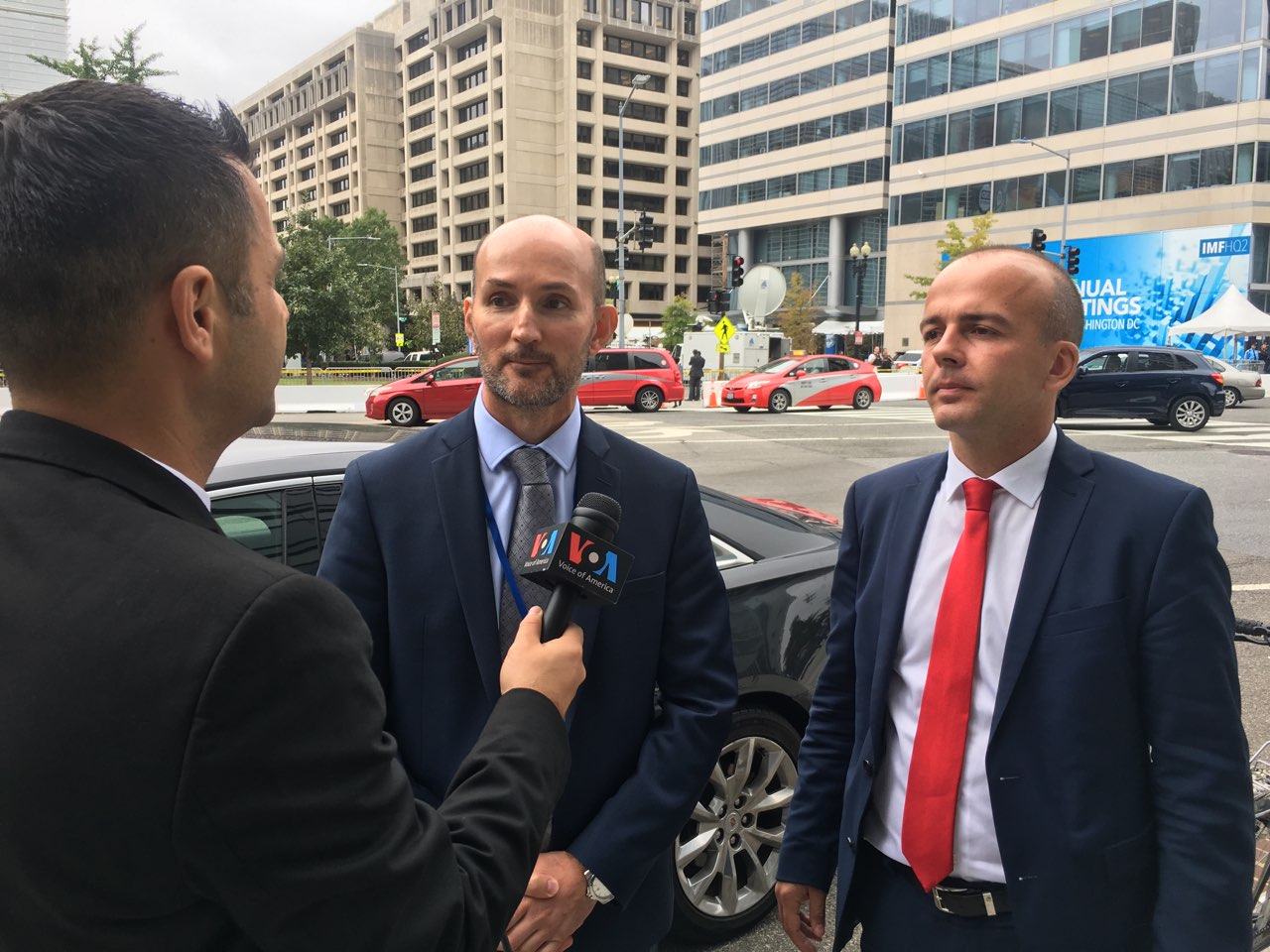16th October 20017, Skopje – Transparent and honest approach by the Government, as well as NATO accession, will lead to higher investments in the country. We are actively working on backward linkages between domestic and the foreign companies in the automotive industry, thus providing for increased activity for the domestic companies as well.
Minister of Finance, Dragan Tevdovski, who participates in the Annual Meetings of the World Bank Group and the International Monetary Fund in Washington, pointed this out in an interview for VOA.

Tevdovski also talked about economic growth projections, position of Macedonia as a small and open economy and the pending challenges.
VOA: How do you estimate the recent announcements by IMF Director Lagarde that new chapter in the global economy is coming and the global growth is forecasted at 3.6%?
DT: What we have heard from IMF Director radiates optimism. This is good, since the expectations in the past years were more pessimistic, more problematic scenarios were considered. Since Macedonia is a small and open economy, this is very important for the country, which is dependent on the external environment. For instance, 70% of our export goes to the European Union and 47% to Germany, hence this is what is important for Macedonia, meaning that the country will have chances to increase its economic growth if global trends are positive and favourable.
VOA: Macedonian economy is projected to grow at a rate of 2.5% according to the recent World Bank and IMF reports. Are such projections realistic?
DT: As regards this year, Ministry of Finance had the most conservative projection for the economic growth compared to the relevant financial institutions, such as the IMF, while with respect to next year, the respective projections are similar, i.e. growth is projected to be higher than 3%. Expectations are that the Macedonian economy will recover and start moving forward. At the moment, we are strongly committed to the reforms at the moment, the Euro-Atlantic integration being Government priority. We believe that reforms will boost growth on the medium run, contributing to even higher growth further on. Political instability slowed down the economic growth, however, forming the Government has led to political stabilization, and we also see stabilization of the investment activity. The three Eurobonds issued and traded on the international market experience historically the lowest yield. It is the markets that value both the perspectives of the Macedonian economy and the stabilization of the political situation the best.
VOA: IMF expects for the inflation in Macedonia to be maintained at 1.7%. They have similar forecast for the next year. What is your comment?
DT: Inflation forecast is realistic. National Bank makes the inflation forecast. At the plenary session, IMF Director Christine Legarde pointed out that IMF’s three priorities were reducing inequality, fighting against poverty and developing human capital – investments in education, health and access to labour market. These are also priorities of the Government of the Republic of Macedonia. There is a clear connection with these policies globally.
VOA: Despite the announcements of all previous Macedonian governments as regards foreign investments, they are in scarcity. Is there a way to boost foreign investments, now when the political crisis in Macedonia is over?
DT: Political crisis, instability and uncertainty certainly affect the investments. Our approach comprises a transparent relationship with the investors, to set a level playing field, so as for the investors to precisely and well informed. There will be no room for irregularities, corruption, etc. This is good and will boost foreign investments. It is also very important, and it is our priority, to establish backward linkages between the domestic companies and the foreign investors, something that has been critically lacking in the past years. At the moment, we are implementing activities, through IFC Project, on backward linkages between the domestic companies in the automotive industry and the foreign companies. This is a serious step forward, which is to have multiple effect, being absent in Macedonia. When talking about foreign investments, NATO accession is certainly the key signal for country’ security. I think this is very important, leading to higher foreign investments.
VOA: What is the biggest challenge for the Macedonian monetary policy in the coming 12 months?
DT: We steer the country in a positive direction. As I have already said, as a small and open economy, the biggest challenges relate to our trade partners. It is good that the relevant financial institutions, such as IMF and the World Bank, speak of recovery of the economic activity, and I believe the next year would be favourable for the Macedonian economy.














